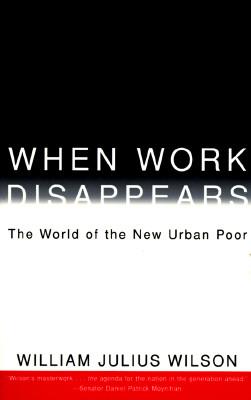 With the economic downturn and an $800 billion stimulus and recovery package going through the Hill, it’s no surprise that welfare, or the “W†word as the New York Times termed it in an article yesterday, is making the rounds once again. If ever there were a need for an influx of research into the journalist’s notebook and the politician’s rationale, it is now when the word “welfare†will be sure to once again pervade popular lingo with all the attendant stereotypes.
With the economic downturn and an $800 billion stimulus and recovery package going through the Hill, it’s no surprise that welfare, or the “W†word as the New York Times termed it in an article yesterday, is making the rounds once again. If ever there were a need for an influx of research into the journalist’s notebook and the politician’s rationale, it is now when the word “welfare†will be sure to once again pervade popular lingo with all the attendant stereotypes.
The Times article cites Robert Rector of the Heritage Foundation’s taking a traditional, conservative, Reaganesque stance on welfare:
“I find it offensive that they’re trying to sneak things in there,†Mr. Rector said of the bill’s supporters. “None of these programs deals with the fundamental causes of poverty, which are low levels of work and lower levels of marriage. They just say, ‘Give me more.’ â€
With 524,000 jobs lost in December and joblessness at 7.2%, a 16-year high, I wonder what Rector and other conservatives expect those who just can’t find work to do in the years ahead while the economy, as Obama has emphasized, will very slowly repower itself (hopefully). For many, jobs will be hard to come by.
But most offensive is the myth of the “welfare queen†that Rector invokes with references to “lower levels of marriage†and welfare as a direct underminer of marriage. Rector is well aware that such language is meant to image up racialized and gendered ideas of the innercity single mother who ostensibly gets herself pregnant and remains unmarried to bring in optimal welfare income.
To give credit to the Times, on the same day, it published an editorial entitled “No Welfare, No Work” defending welfare programs:
The truth is, there will always be people who need to rely on welfare, especially when the economy takes a grim turn. Civilized societies make sure that when people are in desperate need of help, the money is there to take care of them.
Yet the article on the W-word relies on more of a he-said, she-said back-and-forth, playing into people’s preconceived stereotypes, referencing no studies on the actual benefits and repercussions of welfare as studied by sociologists and economists. I’ve recently begun to read works on urban poverty, including William Julius Wilson’s When Work Disappears: The New World of the New Urban Poor. Published in 1997, just after Congress did away with Aid to Families with Dependent Children (AFDC), the study reveals the conundrum of a new urban poor defined primarily by the lack of jobs available to them.
Importantly, Wilson stridently emphasizes the lack of evidence for the idea that “a direct causal connection exists between the level of welfare benefits and the likelihood that a young woman will bear a child outside marriage,” as pundits and politicians often claim when criticizing welfare.
Wilson writes:
The scientific evidence offers little support for the claim that AFDC benefits play a significant role in promoting out-of-wedlock births. Research examining the association between the generosity fo welfare benefits and out-of-wedlock childbearing and teen pregnancy indicates that benefit levels have no significant effect on the likelihood that African-American girls and women will have children outside marriage; likewise, welfare rates have either no significant effect or only a small effect on the likelihood that whites will have children outside marriage. There is no evidence to suggest that welfare is a major factor in the rise of childbearing outside marriage.
As a discussion on welfare once again becomes part of the national dialogue, I hope that it doesn’t fall into the typical stereotypes it did back in the ‘90s. Growing up in a predominantly white, middle-to-upper middle class suburb in Connecticut, I have multiple memories of adults and news programs discussing the “Puerto Rican, welfare queens†in neighboring Hartford. Let’s hope that discussions today will be more nuanced, infused with better research and with a deeper understanding of those very real problems that face all who are affected in this downturn, but particularly the urban poor.


 And according to a cover story in today’s NYTimes,
And according to a cover story in today’s NYTimes, Ok America, time to step up. Our friends at The Guardian are covering how recession is hitting the ladies–and writing about how it’s largely men created this mess. So now it’s your turn. Let’s hear about it. Some links:
Ok America, time to step up. Our friends at The Guardian are covering how recession is hitting the ladies–and writing about how it’s largely men created this mess. So now it’s your turn. Let’s hear about it. Some links: Today marks the launch of the best little darn thing, IMHO, to come out of this damn recession so far: GWP readers, please meet
Today marks the launch of the best little darn thing, IMHO, to come out of this damn recession so far: GWP readers, please meet  Why does the New York Times
Why does the New York Times  Following on the heels of
Following on the heels of 